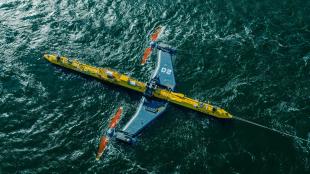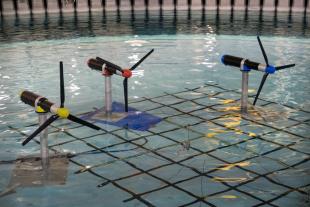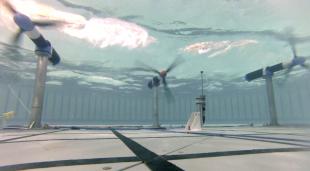Orbital Marine Power
Scottish renewable energy company Orbital Marine Power is currently operating the world’s most powerful tidal turbine, the O2. Prior to the launch of the turbine in 2021, the team at Orbital conducted several test programmes at FloWave to analyse the turbine’s response to realistic sea conditions. These programmes allowed the platforms station keeping to be explored, taking advantage of FloWave’s ability to generate directional wave/current sea states combined with motion and load measurements. The company was recently awarded two contracts for difference (CfDs) in 2022 to deliver multi-turbine projects in Eday, Orkney, using their innovative, world-leading technology
RealTide
The aim of the RealTide project, funded under the EU H2020 programme, was to identify main failure causes of tidal turbines at sea and to provide a step change in the design of key components, namely the blades and power take-off systems, adapting them more accurately to the complex environmental tidal conditions. The RealTide team used ocean measurement and numerical modelling to create a digital map of real ocean conditions. This data was directly applied to the tidal turbine test programmes in FloWave, combined with basin tests of field instrumentation schemes. The resulting upstream, near-structure, and downstream measurement datasets provided an extensive dataset for understanding the conditions essential for reliable operation.
Tidal Research
Contributing to research into how tidal turbines may be optimised and improved has been a key goal for FloWave, for example under the UKCMER SuperGen and EPSRC FloWTurb programmes. In particular, the interactions between neighbouring tidal turbines in a tidal array has shown how in various situations there can be a significant benefit in power output when placing tidal turbines in an array, both with constructive interference for turbines beside each other and diagonally behind each other in arrays. FloWave is the ideal environment for testing this as its current can come from multiple directions and can be combined with waves to study the effect of more realistic ocean environments on tidal turbines.






